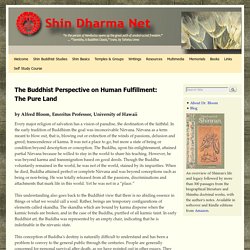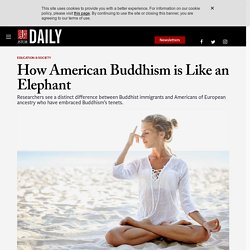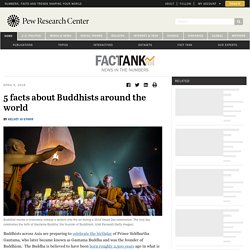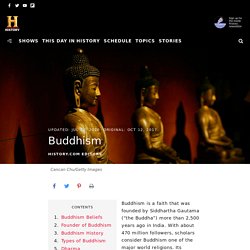

The Buddhist Perspective on Human Fulfillment: The Pure Land. By Alfred Bloom, Emeritus Professor, University of Hawaii Every major religion of salvation has a vision of paradise, the destination of the faithful.

In the early tradition of Buddhism the goal was inconceivable Nirvana. Nirvana as a term meant to blow out, that is, blowing out or extinction of the winds of passions, delusion and greed; transcendence of karma. It was not a place to go, but more a state of being or condition beyond description or conception. The Buddha, upon his enlightenment, attained partial Nirvana because he willed to stay in the world to share his teaching. This understanding also goes back to the Buddhist view that there is no abiding essence in things or what we would call a soul.
This conception of Buddha’s destiny is naturally difficult to understand and has been a problem to convey to the general public through the centuries. Initially birth into the Pure Land came about through forms of meditation and visualizations by adept monks. How American Buddhism is Like an Elephant. To understand Buddhism in the United States, it helps to start with an ancient Buddhist story.

A group of blind men describe an elephant. One, who feels the elephant’s tail, describes it as a rope. Another feels the head, and says the elephant is like a boulder. The other blind men, after feeling its tusks and its belly, describe the elephant as like a long staff or a large urn. The lesson: it’s complex, and depends on which part of the elephant you examine. Buddhism first came to the United States via immigrants from Asia, and people of Asian descent still comprise the vast majority of American Buddhists, who are said to number anywhere from a million to five million.
An estimated quarter of American Buddhists are considered “converts” from traditional Christianity, Judaism, or secularist philosophies. Identifying who is a Buddhist is an arduous task for researchers. Immigrant Buddhists perceive their religious observance as rooted in family traditions. What’s an American Buddhist? HuffPost is now a part of Verizon Media. HuffPost is part of Verizon Media.

We and our partners will store and/or access information on your device through the use of cookies and similar technologies, to display personalised ads and content, for ad and content measurement, audience insights and product development. Your personal data that may be used Information about your device and internet connection, including your IP address Browsing and search activity while using Verizon Media websites and apps Precise location Find out more about how we use your information in our Privacy Policy and Cookie Policy. To enable Verizon Media and our partners to process your personal data select 'I agree', or select 'Manage settings' for more information and to manage your choices. The Buddhist Centre.
What does Buddhism say about prejudice and discrimination? - Prejudice and discrimination - GCSE Religious Studies Revision - BBC Bitesize. 5 facts about Buddhists around the world. Buddhists across Asia are preparing to celebrate the birthday of Prince Siddhartha Gautama, who later became known as Gautama Buddha and was the founder of Buddhism.

The Buddha is believed to have been born roughly 2,500 years ago in what is today Nepal. In Asia, where most Buddhists live, different countries celebrate the occasion on different days, including April 8 in Japan, May 12 in South Korea and May 18 in India and Nepal. The holiday goes by several names, including Buddha Purnima, Vesak, Buddha Jayanti and Ikh Duichen, and is often marked by national holidays, festivals and events at Buddhist temples. Here are five facts about Buddhists: Buddhists made up roughly 7% of the world’s population in 2015, but they are expected to decrease to roughly 5% by 2060. 2Half the world’s Buddhists live in China, according to 2010 Pew Research Center estimates.
Buddhism - Definition, Founder & Origins. Buddhism is a faith that was founded by Siddhartha Gautama (“the Buddha”) more than 2,500 years ago in India.

With about 470 million followers, scholars consider Buddhism one of the major world religions. Its practice has historically been most prominent in East and Southeast Asia, but its influence is growing in the West. Many Buddhist ideas and philosophies overlap with those of other faiths. Buddhism Beliefs Some key Buddhism beliefs include: Followers of Buddhism don’t acknowledge a supreme god or deity. Founder of Buddhism Siddhartha Gautama, the founder of Buddhism who later became known as “the Buddha,” lived during the 5th century B.C. Gautama was born into a wealthy family as a prince in present-day Nepal. He decided to give up his lavish lifestyle and endure poverty.